How Leading Players are Transforming the Global ERP Software Industry
Published: 2025-09-12
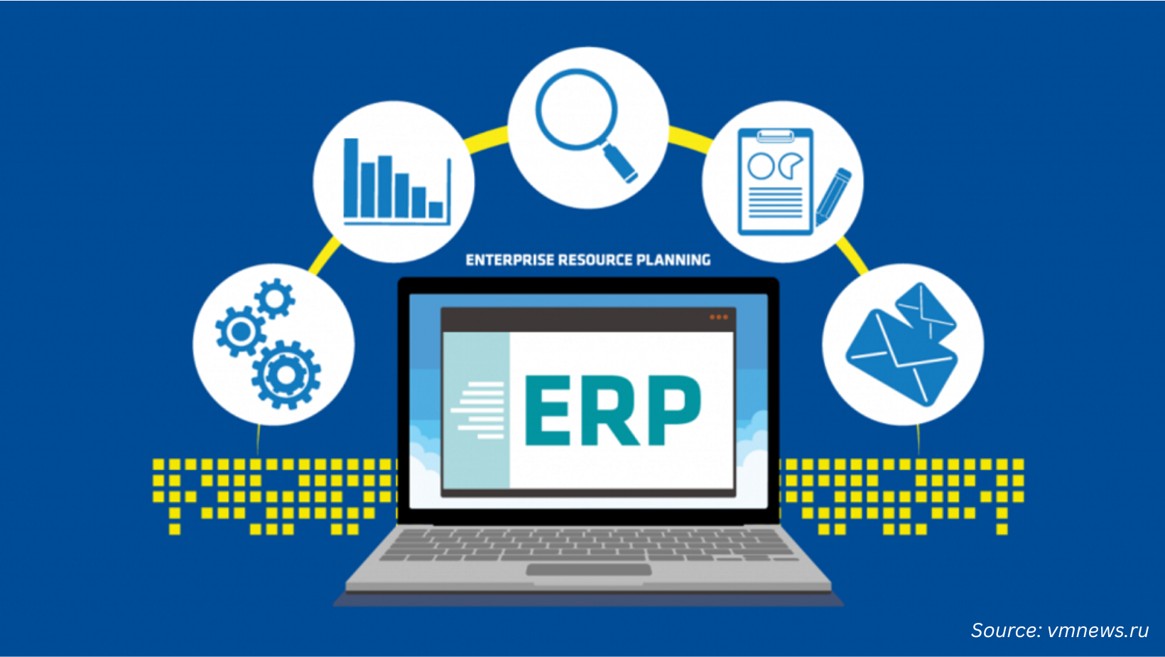
As per NMSC analysis, ERP Software industry is set to maintain strong growth momentum, with the market size expected to reach around USD 199.59 billion by 2030 marking a solid CAGR of 11.6%. Valued at USD 97.77 billion in 2024, the ERP Software market is projected to rise to USD 115.30 billion by 2025. This growth is being propelled by the widespread adoption of cloud-based ERP platforms and AI-driven analytics, the rise of industry-specific and modular ERP solutions, and growing demand for integrated, real-time business insights. Moreover, an industry-wide push for operational agility through data-driven decision-making, IoT-enabled process monitoring, and seamless cross-department collaboration is reshaping the global enterprise landscape and unlocking new opportunities across manufacturing, retail, healthcare, finance, and other key sectors.
Erp Software Market Overview
The global ERP software market is undergoing rapid transformation as businesses across industries embrace digitalization to enhance efficiency, agility, and decision-making. Once viewed primarily as back-office management tools, ERP systems have evolved into intelligent, integrated platforms that unify operations, finance, supply chain, human resources, and customer management in real time. The shift towards cloud-based deployment, coupled with the growing demand for mobile accessibility and AI-powered analytics, is enabling organisations of all sizes to operate with greater flexibility and scalability.
The ERP software market growth is being fueled by increasing adoption of industry-specific ERP solutions, IoT-enabled process monitoring, and advanced automation capabilities. These innovations are helping enterprises improve productivity, ensure regulatory compliance, and respond quickly to industry changes.
As globalization, remote work trends, and data-driven strategies continue to reshape business environments, ERP platforms are becoming central to operational success, positioning the sector as one of the most dynamic and future-ready segments in the global software landscape.
Several major companies dominating the ERP software industry include SAP SE, Oracle NetSuite, Workday Inc., Microsoft Corporation, Xero Limited, Sage Group plc, Infor, and Deltek inc., among others. These industry leaders are at the forefront of transforming global business operations through their commitment to innovation, scalability, and industry-specific solutions.
From integrating AI-driven analytics and cloud-native architectures to enabling IoT connectivity and mobile accessibility, these firms are driving efficiency, agility, and data transparency across manufacturing, retail, healthcare, finance, and other sectors. Their investments in advanced automation, real-time collaboration tools, and customizable ERP modules position them as key enablers of digital transformation, empowering enterprises to remain competitive in an increasingly dynamic and interconnected global economy.
For the in-depth analysis of ERP Software industry, you can reach out to us at: https://www.nextmsc.com/erp-software-market/request-sample
Highlights Of SAP SE
SAP SE, headquartered in Walldorf, Germany, is a global leader in enterprise applications and business AI that helps organizations run core operations, finance, procurement, HR, supply chain and customer experience across cloud, on-premise and hybrid landscapes. Founded in 1972, SAP now serves hundreds of thousands of customers with a broad suite led by SAP S/4HANA Cloud, SAP Business Technology Platform and industry solutions; it reported approx. USD 36.94 billion total revenue (FY2024) and 109k employees, and supports a cloud user base in the hundreds of millions positioning SAP as a market-making force in ERP and enterprise software.
By 2025, SAP plans to deliver 400 embedded AI use cases, expand language support to 11 languages, and integrate Joule into finance, procurement, and error-handling workflows. Also, on December 2024, AP has embedded its generative-AI copilot Joule deeply into its ERP suite, most notably within SAP S/4HANA Cloud Public Edition and Supply Chain Management, enabling natural-language navigation, contextual insights, and automated workflows. These developments significantly elevate SAP’s ERP intelligence, streamlining operations and setting new benchmarks for AI-powered enterprise ERP solutions.
Highlights Of Oracle
Oracle Corporation, founded in 1977 by Larry Ellison, Bob Miner, and Ed Oates, is an American multinational enterprise software and cloud technology company headquartered in Austin, Texas. As of 2025, it ranks among the world’s largest software firms by market capitalization approx. USD 720 billion.
Oracle is best known for its flagship relational database systems and delivers a comprehensive suite of enterprise software, such as, ERP, HCM, CRM, EPM, SCM alongside its Oracle Cloud infrastructure and applications. Through these offerings, Oracle shapes global enterprise operations and drives digital transformation across industries.
By April 2025, Oracle Cloud ERP had further evolved into the most complete multitenant SaaS suite, enriched with dozens of AI apps, an upgraded interface, and deeply integrated AI via Oracle Cloud Infrastructure and its flagship database. Similarly, in September 2024, Oracle embedded over 50 new AI agents into its Fusion Cloud Applications Suite, powering enterprise workflows across finance, supply chain, HR, and more, enhancing automation and accelerating business processes. These innovations elevate Oracle’s ERP landscape, ushering in AI-driven intelligence and efficiency across global ERP systems.
Highlights Of Workday
Workday, Inc., headquartered in Pleasanton, California, is a leading provider of cloud-based enterprise software specializing in Human Capital Management (HCM), Financial Management, Planning, Spend Management, and Supply Chain solutions. Its unified platform serves organizations worldwide with real-time analytics and intelligent workflows across HR, finance, and planning domains.
Workday's Illuminate AI platform integrates agents and generative AI to automate tasks like forecasting, payroll, and workforce planning, empowering businesses to operate more efficiently. With robust AI-powered capabilities and seamless integrations, Workday continues to set new benchmarks in modern enterprise resource planning and workforce management.
In 2024, Workday expanded its product suite by embedding its Illuminate AI platform deeper into ERP-relevant modules, such as Financial Management, Spend Management, and Workforce Planning, enabling real-time decision-making through predictive insights and agent-based automation.
Workday also promoted its Agent System of Record concept, where AI agents act autonomously or assist users within core enterprise workflows like procurement, payroll, and budgeting. These AI enhancements from 2024 onward are transforming Workday’s ERP capabilities, accelerating automation and redefining how global organizations manage integrated finance and HR operations.
Highlights Of Microsoft Corporation
Microsoft Corporation, based in Redmond, Washington, is a global leader in technology, offering a diverse portfolio that spans operating systems (Windows), productivity suites (Office 365), cloud infrastructure (Azure), developer tools, gaming (Xbox), and enterprise software. Launched in 2016, Dynamics 365 is Microsoft’s flagship ERP and CRM platform, delivering modular business applications—like finance, supply chain, HR, and sales, via the cloud. This unified, AI-enhanced platform enables digital transformation for mid-sized and large enterprises, fostering operational agility, data-driven workflows, and integration with Microsoft’s ecosystem, including Azure AI and Power Platform.
During 2025, Microsoft expanded these Copilot features into Dynamics 365 Human Resources and Commerce, plus deepened integrations with Azure AI Services to boost real-time analytics and ERP intelligence across the platform. Similarly, in 2024, Microsoft integrated Copilot, its generative AI assistant, into Dynamics 365 Finance and Supply Chain Management, enabling natural language Q&A, automated insights, and predictive planning capabilities. It also introduced Virtual Supply Chain Planner and Automated Invoice Processing, powered by AI, slashing manual workload and enhancing responsiveness. These moves underscore Microsoft’s push to deliver more intelligent, AI-enabled ERP solutions globally.
Highlights Of Sage Group Plc
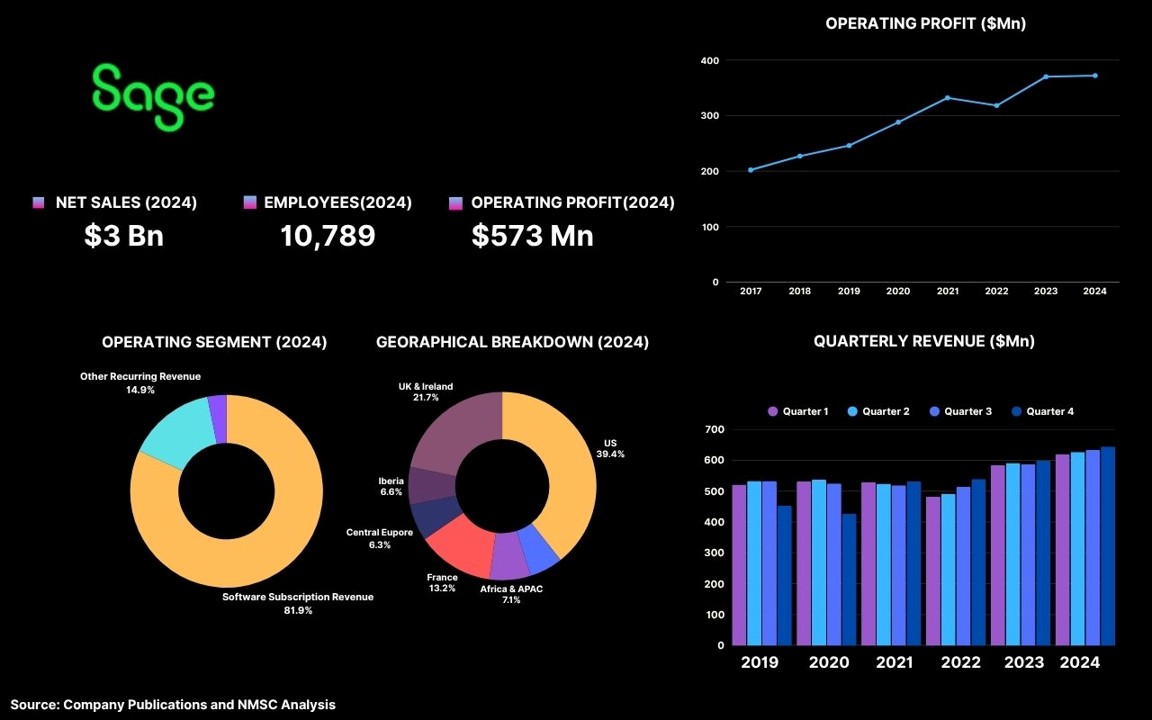
Sage Group plc is a UK based multinational enterprise software provider headquartered in Newcastle upon Tyne, England. With over 40 years of experience and serving more than 2 million customers, Sage delivers cloud-first solutions for small to mid sized businesses across accounting, payroll, HR, CRM and ERP. Its ERP offerings, most notably Sage X3 and Sage Distribution and Manufacturing Operations (SDMO), support manufacturing, distribution, supply chain, finance, and production workflows. By integrating AI driven tools like Sage Copilot and scalable modules (e.g., Sage Intacct), Sage empowers businesses to optimize operations, drive productivity, and unlock growth globally.
Looking ahead, Sage could capitalize on expanding automation via robotic process automation (RPA) within ERP workflows to reduce manual tasks and errors. Further development of AI-driven predictive analytics can help businesses better forecast demand and optimize inventory in manufacturing and distribution sectors. Integration with IoT devices could enhance real-time supply chain visibility, while investments in blockchain for secure transactions and audit trails may increase ERP trustworthiness. These technologies, combined with Sage’s cloud-native evolution, could drive substantial efficiency and innovation in ERP systems globally.
Highlights Of Infor
Infor, headquartered in New York City, is a global leader in industry-specific enterprise cloud software. Serving over 60,000 organizations, including manufacturing, distribution, healthcare, and public sector clients—Infor offers tailored ERP solutions such as CloudSuite, M3, LN, and SyteLine, built atop its Infor OS platform, which includes embedded analytics, enterprise AI, integration (iPaaS), and automation tools.
Backed by Koch Industries, Infor delivers deep vertical functionality through cloud-native architecture, empowering businesses with rapid deployment, digital transformation at scale, and operational agility across complex industries. Infor continues to strengthen its ERP offerings with innovation and strategic partnerships. In 2025, Infor partnered with Kinaxis to launch Planning One for CloudSuite Discrete Manufacturing, bringing advanced demand and supply scenario planning to its ERP suite.
Also, in November 2024, Gartner named Infor a Leader in Cloud ERP for Product-Centric Enterprises for the fourth consecutive year, noting its platform-first, AI-enabled approach. Similarly, at the 2024 Velocity Summit, Infor expanded CloudSuite capabilities with embedded generative AI assistant, process mining, and ESG reporting, enhancing industry-specific ERP intelligence and compliance. These strategic advancements and recognitions underscore Infor’s commitment to delivering cutting-edge, AI-driven ERP solutions tailored for complex, product-centric industries.
Summary Of Erp Software Industry
The ERP software market is rapidly expanding as businesses increasingly adopt cloud-based solutions to enhance efficiency and streamline operations across finance, supply chain, HR, and manufacturing. Key drivers include the demand for real-time data access, automation, and improved decision-making.
Emerging technologies like AI, machine learning, and advanced analytics are transforming ERP systems into intelligent platforms capable of predictive insights and workflow automation. Small and medium enterprises are also contributing significantly to the ERP software market demand by embracing scalable, cost-effective ERP options.
In 2024–2025, the sector is witnessing a surge in innovations such as generative AI integration, enhanced process mining, and ESG compliance tools embedded within ERP suites. Strategic collaborations between ERP providers and tech firms are fostering specialized, industry-focused solutions. The trend toward hybrid and multi-cloud deployments is increasing flexibility and adoption. Thus, the ERP software market is shifting toward smarter, more adaptive platforms that drive agility and continuous business improvement.
About the Author
 Mayurima Roy is a seasoned researcher with over two years of experience, specializing in various industry verticals such as Pet apparels, recycling market, and consumer electronics. With a strong passion for writing, she views blogging as a valuable platform to share her industry insights and expertise. Outside of tracking market trends and developments, Mayurima enjoys crafting, cooking, and exploring her creativity through photography. The author can be reached at [email protected]
Mayurima Roy is a seasoned researcher with over two years of experience, specializing in various industry verticals such as Pet apparels, recycling market, and consumer electronics. With a strong passion for writing, she views blogging as a valuable platform to share her industry insights and expertise. Outside of tracking market trends and developments, Mayurima enjoys crafting, cooking, and exploring her creativity through photography. The author can be reached at [email protected]
About the Reviewer
 Sanyukta Deb is a skilled Content Writer and Digital Marketing Team Leader, specializing in online visibility strategies and data-driven campaigns. She excels at creating audience-focused content that boosts brand presence and engagement, while also pursuing creative projects and design interests.
Sanyukta Deb is a skilled Content Writer and Digital Marketing Team Leader, specializing in online visibility strategies and data-driven campaigns. She excels at creating audience-focused content that boosts brand presence and engagement, while also pursuing creative projects and design interests.
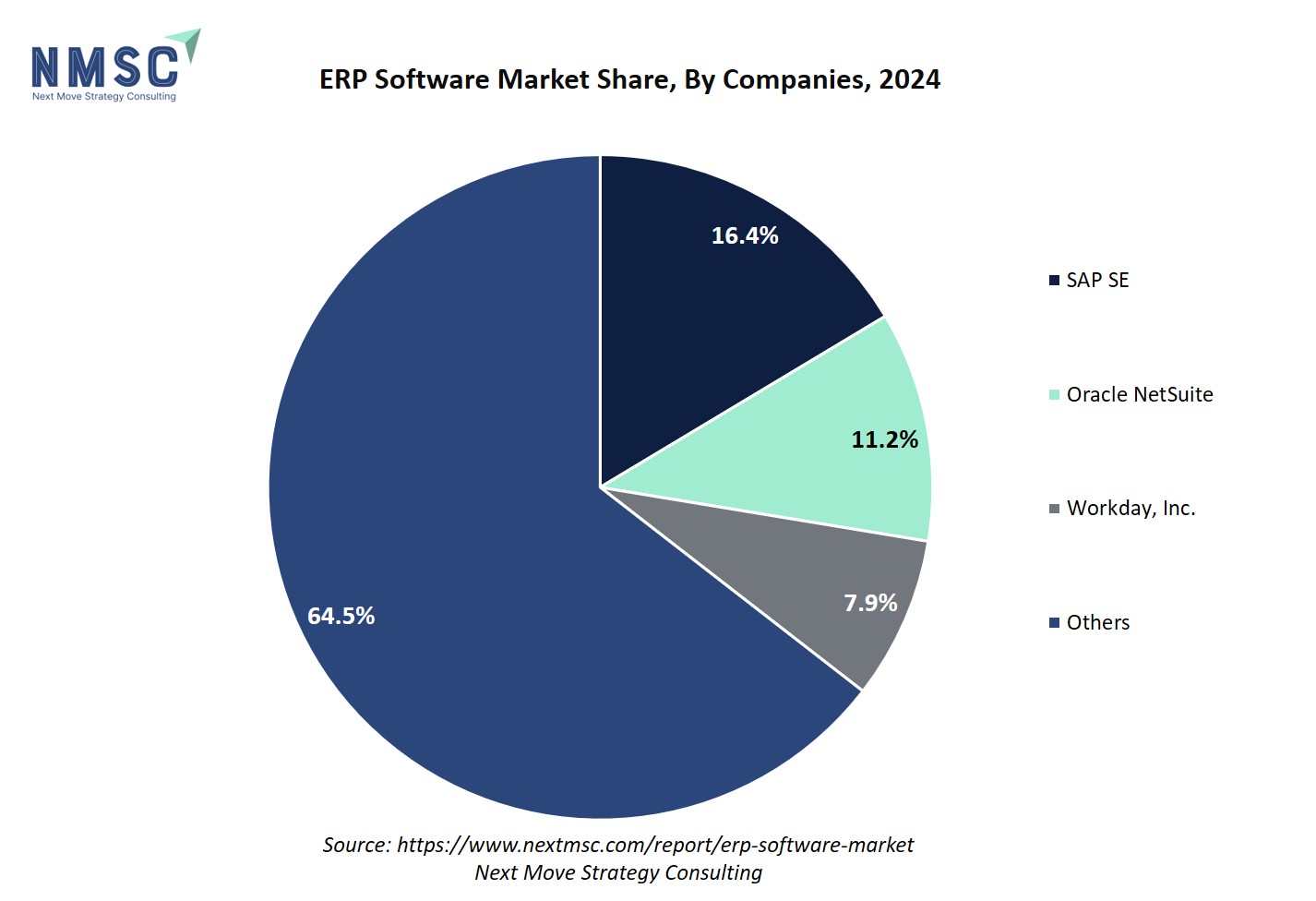
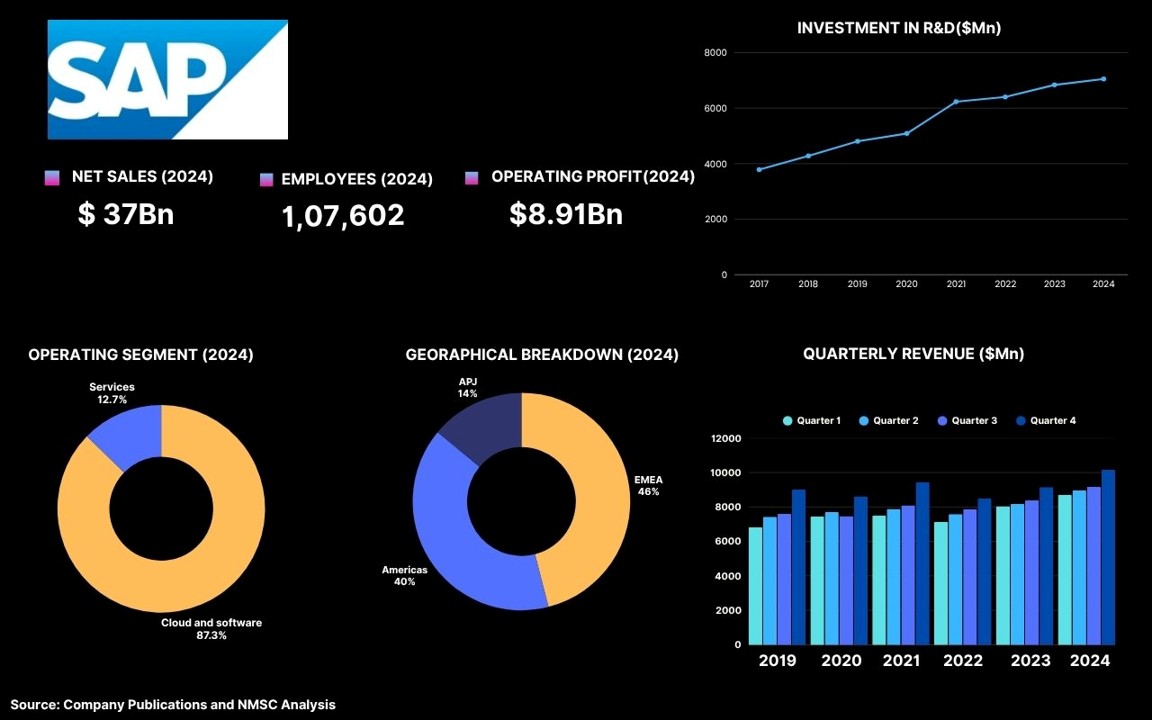
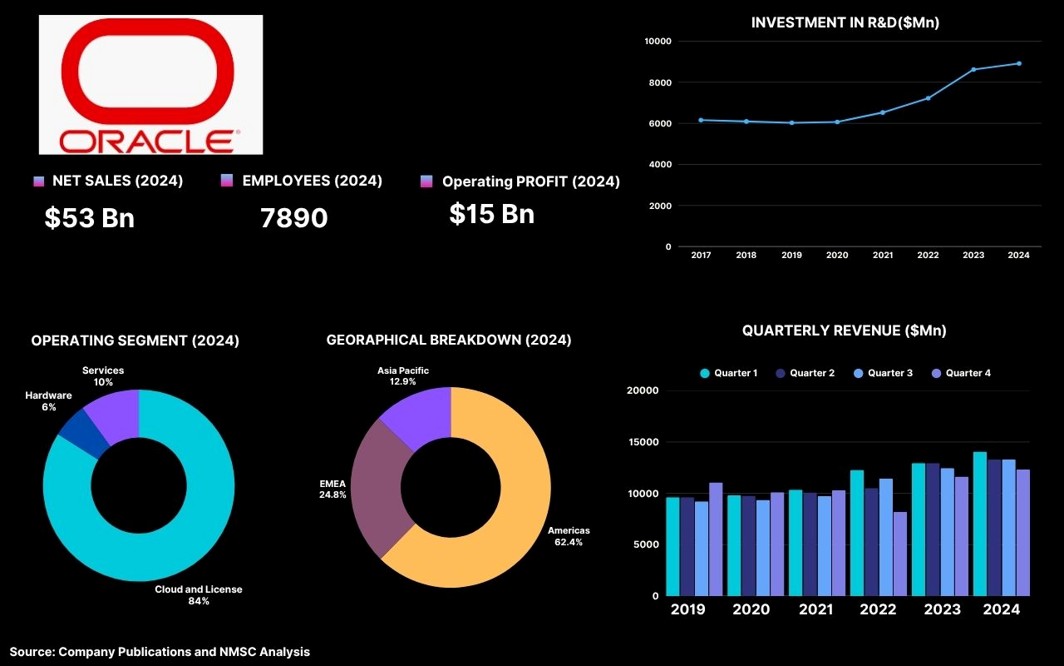
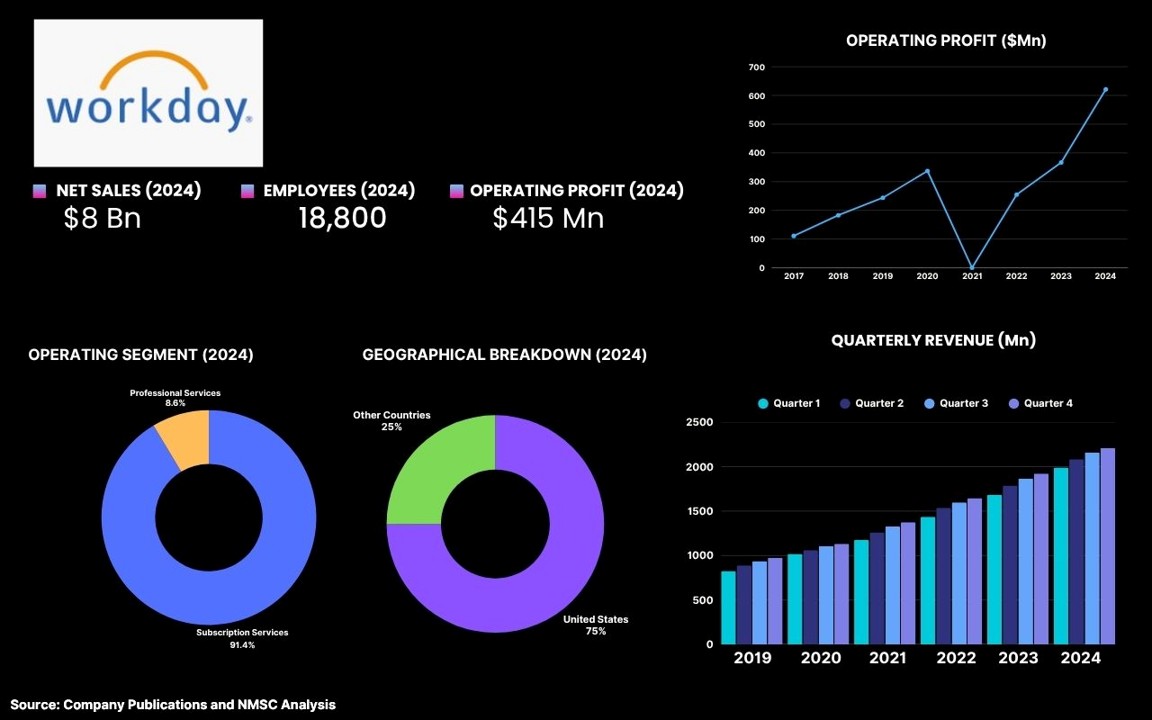
















Add Comment